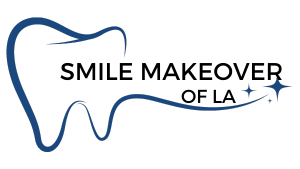
A localized compilation of pus in the alveolar bone at the root apex of the tooth dental abscesses is a bacterial infection, which can be either throbbing or unproblematic in Dental Abscesses. This can happen to both children and adults.
Types of Dental Abscess: Glendale Dentist
- Gingival abscess
- Periodontal abscess
- Periapical abscess
Causes of Dental Abscesses: Dentist Glendale
- Injured teeth if left untreated, decomposing teeth can stimulate an abscess. These conditions can lead to an opening in the tooth enamel. Subsequently, it permits bacteria to contaminate the center of the tooth resulting in abscesses at the peak of the tooth. If the infection is overlooked it spreads from the root to the bone supporting the tooth.
- Contamination in the gums and deep pockets within the gums can as well uphold abscesses.
- Infectivity after dental treatments such as implants, extractions, and root canal treatment
- Contamination around the swollen soft tissue surrounding the erupting tooth is called pericoronitis.
- Forceful tooth brushing
Indications of a Dental Abscess:
- A twinge in the affected region when biting or while touching the affected area
- Sensitivity to cold or hot food and liquids
- A stinking taste in the mouth
- Fever
- A generally unwell feeling
- Trouble in opening the mouth
- Problem in swallowing
- Sleeplessness
Ways to Prevent Dental Abscesses
Maintaining good oral hygiene reduces the chances of dental abscesses. Furthermore, let’s discuss some of the key methods of preventing dental abscesses.
Diet
One of the major causes of tooth decay is sugar. It sticks to the tooth structures and speeds up tooth decay. Therefore, stay away from sugary, starchy, and gluey foods to reduce the threat of developing a dental abscess.
Using a Fluoride Toothpaste

Fluorides shields the teeth against mineral loss, add remineralization of enamel, and avoid the development of acids. Fluoridated toothpaste is the most effective way to reduce caries.
Start Using Good Oral Hygiene
Regular and proper brushing of the teeth is the best way to maintain good oral hygiene. Start using dental floss for proper cleaning between teeth and gums. You may look for a dental professional to help with the right brushing and flossing techniques. Furthermore, change toothbrushes every three or four months.
Regular Dental Check-Ups
Whether you experience any problem or not; make it a practice to visit your dentist for regular checkups. Take professional advice every 6 months. Discuss with the dentist without delay in case of trauma happens to the tooth.
Complications:
- Dental cysts
- Cavernous sinus thrombosis
- Ludwig’s angina
- Osteomyelitis
- Maxillary sinusitis
Dental Abscesses: Home Remedies
- Stay away from food and drink that is either too hot or too cold
- Chewing on the side of your mouth without an abscess will perhaps be less throbbing
- Avoid flossing around the affected area
- Use a very soft toothbrush
Home remedies can give you temporary relief but are not permanent solutions. So, you can lessen the risk of developing a tooth abscess by consulting a dentist routinely. If you leave it untreated; things could get complicated.
How Does a Dentist Diagnose an Abscessed Tooth?

- X-ray
- CT scan
- Tap and press on your teeth
- Thermal tests
Glendale Dental Abscesses
Oral hygiene is very important for dental health. If you are experiencing pain, even after brushing your teeth twice a day and flossing once a day; don’t neglect it. Reach us at Smile Makeover of LA to consult with Dr. Sahakyan. Call us at 818-578-2334.
